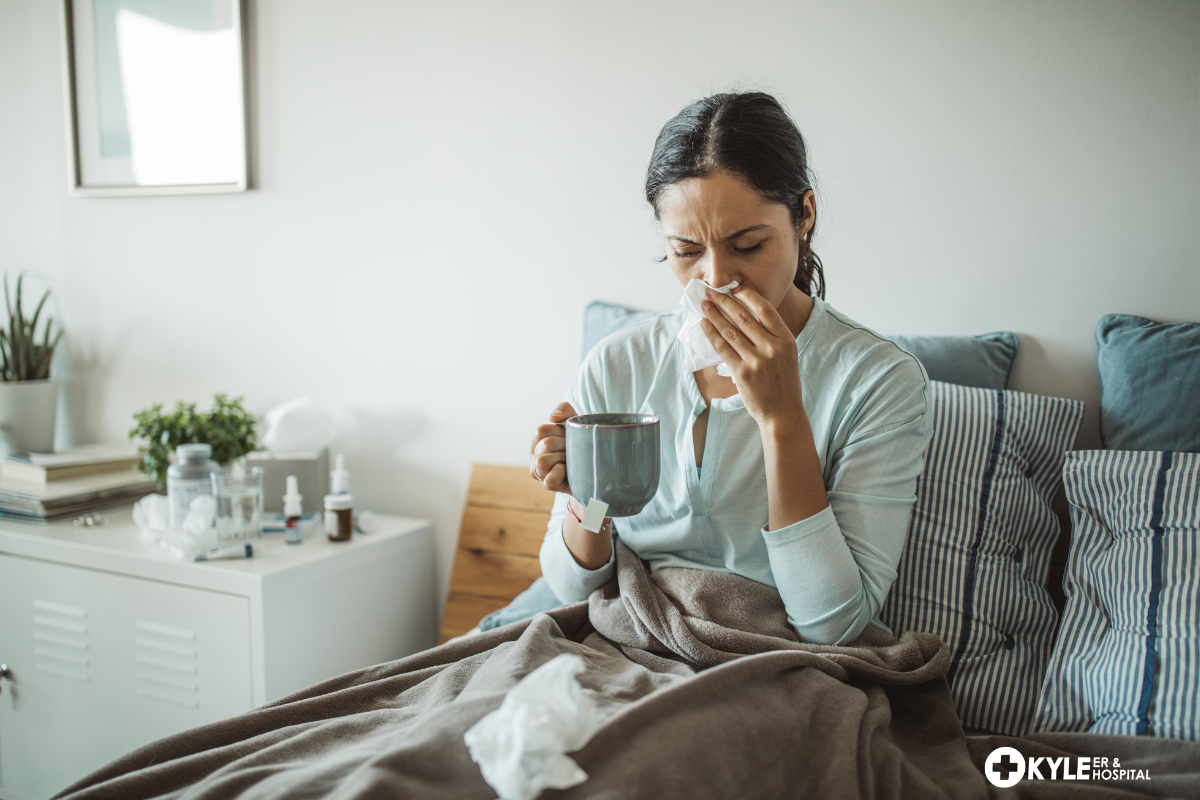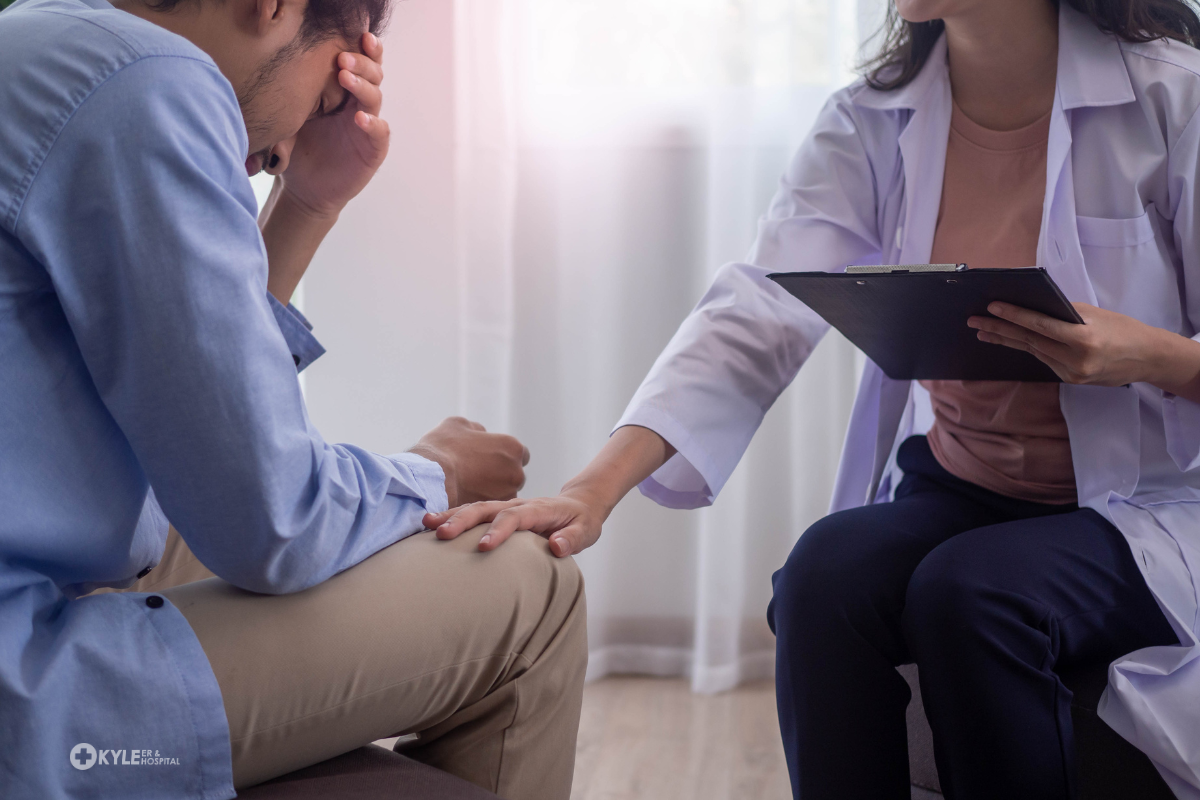A guide to avoiding dehydration and recognizing its symptoms
The Texas summer brings sunshine, outdoor fun, and unfortunately, a much higher risk of dehydration. Whether you’re out for a hike, working in the yard, or just enjoying time at the pool, staying hydrated is essential for your health and safety. At Kyle ER & Hospital, we see a spike in dehydration-related visits every summer. The good news? Most cases are preventable with a little awareness and preparation. Here are some signs to look for when dehydration becomes an emergency, and some ways to prevent it.
💧 What Is Dehydration?
Dehydration happens when your body loses more fluids than it takes in. This can happen quickly in the heat, especially when you’re sweating, not drinking enough water, or feeling sick.
🚩 Signs and Symptoms of Dehydration
Recognizing the early signs of dehydration can help you act before it becomes serious. Symptoms vary by age and severity, but here are the most common red flags:
Mild to Moderate Dehydration:
• Dry mouth and dry skin
• Thirst
• Fatigue or lightheadedness
• Headache
• Dark yellow urine or infrequent urination
• Muscle cramps
Severe Dehydration (Seek Emergency Care):
• Confusion or irritability
• Dizziness or fainting
• Rapid heartbeat or breathing
• No urination for 8 hours or more
• Sunken eyes
• Dry, shriveled skin
• Loss of consciousness
Severe dehydration is a medical emergency; especially in children, older adults, or individuals with chronic illnesses. If you or a loved one are showing these symptoms, visit the emergency room immediately.
☀️ Who’s Most at Risk?
While dehydration can affect anyone, certain groups are especially vulnerable:
• Young children (they lose fluids faster and may not communicate thirst)
• Older adults (they may have a reduced sense of thirst)
• People who work or exercise outdoors
• Individuals with chronic illnesses or taking diuretics
• Athletes
💡 Tips to Stay Hydrated in the Heat
Prevention is always the best medicine. Here’s how to stay ahead of dehydration:
1. Drink water consistently: don’t wait until you’re thirsty
2. Avoid sugary or alcoholic beverages: they can increase fluid loss
3. Eat water-rich foods: like watermelon, cucumbers, oranges, and lettuce
4. Take breaks in the shade or air conditioning
5. Wear light, breathable clothing
6. Carry a reusable water bottle, and refill it often
For outdoor workers and athletes, consider electrolyte-replenishing drinks if you’re sweating heavily for long periods.
🏥 When to Visit the ER
Come to Kyle ER & Hospital right away if you or someone else experiences:
• Confusion or disorientation
• Inability to keep fluids down
• Rapid pulse or shallow breathing
• Fainting or severe weakness
• No urination for 8+ hours
We’re open 24/7 with no wait times, so you can get the care you need, fast.
Have a Safe & Healthy Summer
Don’t let dehydration ruin your summer fun. Be proactive, stay informed, and remember: if something doesn’t feel right, trust your instincts.
Stay cool. Stay hydrated. Stay healthy.











